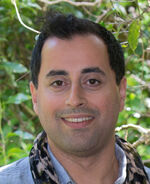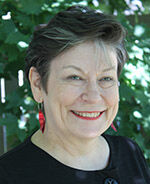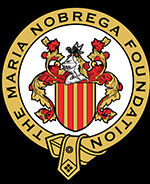Collaborators
Gareth Doherty
 Assistant Professor of Landscape Architecture and Director of the Master in Landscape Architecture Program
Assistant Professor of Landscape Architecture and Director of the Master in Landscape Architecture Program
Harvard University
Graduate School of Design
Gareth's research and teaching focus on the intersections between landscape architecture and anthropology. Doherty's recent research projects have centered on landscape-related practices at various sites across the postcolonial and Islamic worlds, specifically in the Arabian peninsula, West Africa, and Latin America and the Caribbean.
Bruno Marques
 Program Director for Landscape Architecture and Senior Lecturer
Program Director for Landscape Architecture and Senior Lecturer
Victoria University of Wellington
School of Architecture
Bruno's main research interests relate to the integration of indigenous methods in participatory design and place-making in landscape rehabilitation and ecosystem services. He is also the team leader for the Therapeutic and Rehabilitative Designed Environments | Taiao + Tumahu Lab (TRDE, www.trde.design). Bruno has undertaken other academic and professional roles such as Deputy Head of School (2018-2019) and Director of Postgraduate Programmes (2015-2018) as well as chair for the International Federation of Landscape Architects (IFLA) Standing Committee on Communications and External Relations (2014-2018).
You can find an extensive list of publications on Research Gate and Google Scholar.
Emma Marsh
 Director
Director
RSPB England
Emma is the Director for RSPB England, part of Europe’s largest conservation charity. Before joining the RSPB in January 2016, she worked for 11 years for WRAP working on waste and recycling finally heading up their internationally successful Love Food Hate Waste campaign. Emma is interested in behaviour change and landscape scale conservation and how we can effectively engage and empower a diverse society which is increasingly disconnected from nature to protect and value the landscapes and wildlife that surround them.
Colleen Mercer Clarke

Chair, International Federation of Landscape Architects Working Group on Climate Change. Chair, Canadian Society of Landscape Architects Committee on Climate Adaptation
Colleen is a landscape architect and marine ecologist with a career that has included private sector, government and academia. Since 2009, she has been active with national and international community-university alliances focussed on adaptation in coastal communities at threat from sea level rise, severe weather and a changing climate. With over 35 years’ experience in the consulting sector, her work focused on the sustainable development of resources and communities through stewardship and conservation of natural and cultural resources.
A past-president of the CSLA, Colleen has served on a range of National Boards, Executives and local and national Advisory Committees related to coastal and oceans management and to broader conservation goals. In 2009, in recognition of her service to the profession and to the environment, she was elected to the College of Fellows of the CSLA. In 2018, Colleen was accepted as a scientist Member of the Commission on Ecosystem Management of the International Union for the Conservation of Nature, where she also serves as the IFLA Delegate to the IUCN Council.
Elizabeth Nobrega Tsakiroglou

International President of the Maria Nobrega Foundation and International Traditional Knowledge Institute
Elizabeth, along with her late husband Colonel Michael Carrington, co-founded the Maria Nobrega Foundation. They established the Foundation in Brazil in 2003 as a catalyst for preserving cultural heritage which bears the name of Elizabeth Nobrega’s mother, a prominent Brazilian figure. It works internationally on a range of projects with branches in the United Kingdom, Italy, Libya, the United States of America , Austria and Romania.
She was a founding member of The International Traditional Knowledge Institute (ITKI) of which she is the International President. ITKI It is an active network of international chapters, individuals and institutions. Founded in Florence, Italy in 2009, under the auspices of UNESCO, dedicated to the preservation and storage of traditional knowledge through the implementation of a freely available global data base named The Traditional Knowledge World Bank. It has branches in United States, Romania, Austria. Traditional Knowledge consists of practical (instrumental) and normative knowledge concerning the ecological, socio-economic and cultural environment.
Maria Nobrega Foundation

The Maria Nobrega Foundation was established as a Charitable Trust with the Charity Commission in 2003. It is privately funded. It works internationally on a range of projects, which encompass the aim of promoting architectural heritage restoration, sustainable regeneration and the preservation of cultural heritage.
The Foundation acts as a catalyst to assist Governments, International Government Agencies, Non-Governmental Organisations and local communities, to plan and implement these projects.
The Foundation is a Founding Member of The International Traditional Knowledge Institute (ITKI) and The Traditional Knowledge World Bank (TKWB).
The Maria Nobrega Foundation has close relationships with HRH Prince Charles.
Adejumo Olatunji
 Landscape Architect/Associate Professor
Landscape Architect/Associate Professor
University of Lagos
Department of Architecture
Faculty of Environmental Sciences
Adejumo Olatunji is a Nigerian landscape architect, environmental planner and Associate Professor of Landscape Architecture in the Department of Architecture, University of Lagos, Nigeria. His first degree is in forestry from University of Ibadan; followed by a master’s in landscape architecture from State University of New York, Syracuse; and a PhD inarchitecture fromUniversityof Lagos. Tunji is interested in productive landscape schemes that respect contextual bioregional resources and support people-driven initiatives.
- Tunji has 36 years of experience in landscape architecture and environmental planning. The past 18 years he is in academia.
- Tunji’s landscape architecture principles are rooted in Geosophy, as a creative approach to sustainable development.
- His research interests are in the interface of cultural and ecological systems as a determinant of useful worldview principles relevant to the conceptualization of harmonious places in global south cities.
Tunji is the immediate past President of the International Federation of Landscape Architects (African Region – IFLA Africa). He has served as a one-time President of the Society of Landscape Architects of Nigeria (SLAN) and he currently coordinates the Master of Landscape Architecture programme in the Department of Architecture, University of Lagos.